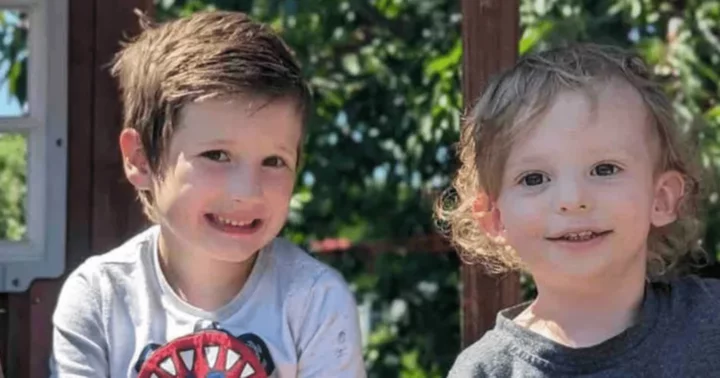SPOKANE, WASHINGTON: A couple in Washington was left shattered after learning that their sons had been diagnosed with childhood dementia as a result of a rare genetic disease. Kristian Tucker from Spokane, revealed that her sons, six-year-old Michael and two-year-old Oliver, were diagnosed with Type-2 Batten disease, in April and May, respectively. Michael was first diagnosed with the condition after having severe seizures.
As a precaution, the rest of the family then got tested and learned that Oliver had also inherited the rare condition. “Both of my boys [are] going to be taken from me. I found out what true devastation really is,” Tucker, reportedly said.
What is Batten Disease?
Batten disease, also known as Spielmeyer-Vogt-Sjogren-Batten disease, is a rare group of nervous system disorders called neuronal ceroid lipofuscinosis (NCLs) that most often begin in childhood. The disorder impairs the body's capacity to eliminate cellular waste (lipids and proteins), causing them to accumulate in cells throughout the body. the condition reportedly affects one out of every 100,000 children globally, as per NY Post.
The disease's signs and symptoms might differ from case to case, although they often include visual loss and eventual blindness, seizures, mobility disorders and dementia in children. Currently, no specific treatment can reverse the symptoms of Batten Disease.
How did Kristian Tucker learn about Michael’s condition?
Tucker and her husband, Bryden, first observed something strange about his eyes just before his fifth birthday. “Michael first started having seizures when he was around four years old, however, they were so subtle, we didn’t recognize them to be seizures,” she said.
“Around the time he was turning five, his eyes started rolling, and we just assumed that it was something new he had learned to do,” Tucker continued, adding, “However, it started happening more and more as he was walking, playing, and eating, and we started to think that this was not normal.”
As a precautionary measure, the couple took Michael to his doctor, who referred him to a neurologist. The expert later attested that Michael had regularly been having seizures. “He started various medications but nothing was helping him. So the doctors decided that they wanted to do some genetic testing on Michael, and on me and my husband,” Tucker noted.
'It was totally devastating'
Tucker was left devastated in April when the test results revealed that she and Bryden both carried Type 2 Batten Disease genes and had passed it on to Michael, who was now afflicted with the fatal disease. After learning of Michael's bleak prognosis, Tucker and Bryden decided to get their four-year-old daughter, Talia, and Oliver tested for the illness in May. The already-heartbroken parents received another blow after discovering that Oliver also had Batten Disease.
“After learning about Michael’s diagnosis, it felt like the floor had come away from under me and all stability had gone. It was totally devastating, and then I had to go through it all again with Oliver,” Tucker said.
'He struggles a lot, but he is always so happy'
The test findings revealed that Talia does not have a life-threatening disease, but she was a carrier. Despite the devastating diagnosis, the Tucker family was working to extend their sons’ lives for as long as possible.
“Both boys are scheduled for surgery that will slow down the process, and are also due to start treatments next month that will give them a better quality of life,” Tucker said, adding, “But it won’t stop or do anything for their eyesight."
Tucker described Michael as a sweet, cuddly "mommy's boy," who loves to make his younger siblings laugh despite his speech impairment. “He also had a speech disorder called apraxia, which means his brain struggles to tell his mouth how to move, and sometimes it is hard to understand him. He struggles a lot, but he is always so happy and in a great mood,” she wrote
Tucker wrote that Oliver was just as upbeat and playful as his older sibling. “Oliver is mischievous and is always trying to climb and escape his baby gate. He’s a wild child with so much personality,” she said.









